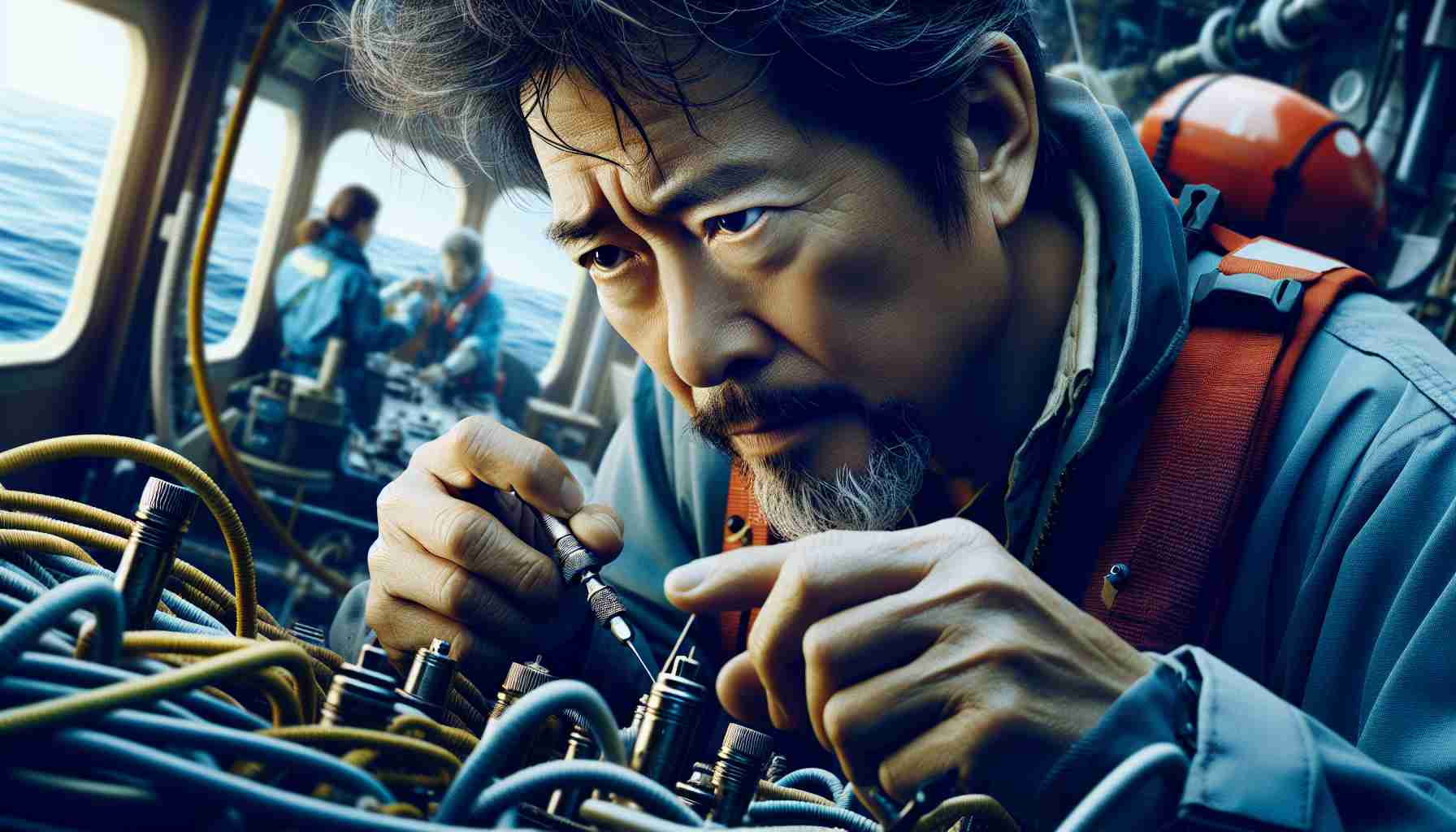- Andrew Babbin is an experienced oceanographer focused on marine biogeochemistry and the nitrogen cycle.
- His research highlights the crucial role of marine microbes in maintaining ocean health and regulating carbon storage.
- Babbin uses a combination of field data and lab experiments to explore the connections between nitrogen cycles and climate change.
- His early experiences by the Jersey Shore cultivated his passion for marine science, leading to advanced studies at prestigious institutions.
- At MIT, Babbin utilizes innovative 3D printing technology to simulate ocean environments for research purposes.
- His work aims to provide insights and solutions for ocean conservation, emphasizing creativity and adaptability in research.
Andrew Babbin, a seasoned oceanographer and marine biogeochemist, is making waves in the fight to keep our oceans healthy. Never one to travel light, his work trips include an unexpected essential: a DIY repair kit stocked with electrical and duct tape, cable ties, and bungee cords. Babbin’s journeys take him far from shore on month-long research cruises, where quick fixes can be the difference between success and failure.
Deep beneath the waves, Babbin studies the vital role of marine microbes in the nitrogen cycle—nature’s intricate system that sustains ocean life and regulates carbon storage. With his expertise, he combines data collected in the field with lab experiments to unveil the connections between these microorganisms and ocean health. He believes that understanding how nitrogen cycles through marine ecosystems is crucial to combating climate change.
Growing up near the Jersey Shore and enjoying family cruises, Babbin’s love for the ocean blossomed early, guiding him to a path in Earth and environmental engineering at Columbia University. Through rigorous studies and adventurous ocean trips during his PhD at Princeton, he discovered the incredible interplay of nitrogen-fixing microbes and their impact on the marine food web.
Settling at MIT, Babbin has created a vibrant lab environment where he and his team use cutting-edge 3D printing technology to mimic ocean conditions and study these microorganisms’ metabolic processes. His work not only enhances our comprehension of the ocean but also fuels the pursuit of solutions to protect it.
The takeaway? Babbin’s journey illustrates that passion, creativity, and a little improvisation can lead to groundbreaking discoveries that nurture our planet’s health.
Revolutionizing Ocean Health: The Innovative Journey of Andrew Babbin
The Role of Microbes in Ocean Health
Andrew Babbin is at the forefront of marine biogeochemistry, focusing on the essential functions of marine microbes in the nitrogen cycle. His research underscores how these microorganisms are vital in maintaining the ecological balance of our oceans. By investigating the interactions between nitrogen-fixing microbes and their environments, Babbin aims to provide insights into how to mitigate challenges posed by climate change.
New Innovations in Marine Research
1. 3D Printing in Oceanography: Babbin’s lab utilizes advanced 3D printing technology to recreate ocean conditions, allowing for more accurate studies of microbial behaviors and interactions. This innovation has opened new avenues for research, enhancing our understanding of life beneath the waves.
2. DIY Field Solutions: The inclusion of a DIY repair kit during research trips highlights the importance of problem-solving in scientific environments. Such improvisation is vital for scientists working in remote and unpredictable ocean settings, ensuring that equipment remains functional during critical studies.
3. Data Integration Techniques: Babbin combines field-collected data with controlled lab experiments to draw comprehensive conclusions about the marine nitrogen cycle. This integrated approach is crucial for developing effective strategies to protect marine ecosystems.
Key Takeaways on Marine Microbial Research
– Impact on Carbon Storage: Babbin’s work sheds light on how the nitrogen cycle influences carbon sequestration in oceans, a vital process in mitigating climate change.
– Educational Outreach: Babbin emphasizes the importance of educating the next generation of scientists about marine health, ensuring that they are equipped with the knowledge to tackle future challenges.
Important Questions Answered
1. What are the main functions of marine microbes in the nitrogen cycle?
Marine microbes play a crucial role in the nitrogen cycle, including nitrogen fixation, nitrification, and denitrification. These processes are essential for converting atmospheric nitrogen into forms usable by marine life, thus sustaining the oceanic food web.
2. How can Babbin’s research contribute to combating climate change?
By understanding the role of nitrogen-fixing microbes, Babbin’s research can inform strategies to enhance carbon storage in oceans, potentially mitigating the effects of climate change and promoting ecosystem resilience.
3. What innovative technologies are being used in marine research today?
Technologies like 3D printing are revolutionizing how researchers simulate and study ocean conditions. This innovation helps scientists like Babbin study microbial metabolic processes under realistic scenarios, leading to better insights into ocean health.
Suggested Related Links
For more information on oceanography and marine research, visit MIT.













